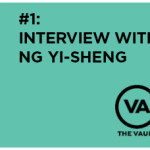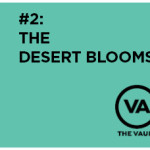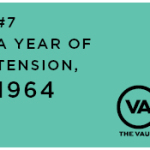Early queer-themed theatre works in Singapore often responded to events which directly affected the LGBTQ community. The Vault: Desert Blooms recounts several key moments in history between the years 1985 and 1995 which provided fodder and impetus for theatre-makers to create work. Here are three important events in Singapore queer history that influenced the work made in the local theatre scene during the period:
1. 10 April 1985: The AIDS virus is discovered in Singapore
In 1981, five young gay men in Los Angeles contracted a rare lung infection. The root cause was soon found to be a virus which attacked their immune systems, and was transmitted via sexual contact. The infected were rendered vulnerable to and would succumb to opportunistic diseases like infections. The virus was soon reported in many other gay men, and hence named Gay-Related Immune Deficiency (GRID).
But by 1982, almost half of the infected population were non-homosexual. It was also found that the virus could be transmitted through intravenous injections and blood transfusions too. The mysterious disease was soon given a new name – Acquired Immune Deficiency Syndrome or AIDS. In the next few years, the AIDS epidemic spread rapidly across major US cities, and, due to air travel, across the world. In 1985, three male sex workers in Singapore were found to have AIDS.
“The disclosure that three local homosexual prostitutes had been discovered with the AIDS virus has spread alarm among the gay community. Heterosexuals also were concerned that they might pick up the dreaded virus in public places… Several homosexuals, or “gays”, said fear of the disease had impelled them to change their lifestyles. Many said they believed the virus existed in Singapore even before the three cases came to light last week.”
Source: Fear and uncertainty hit the gay community by Frieda Koh. In Singapore Monitor (14 Apr 1985), https://eresources.nlb.gov.sg/newspapers/Digitised/Article/singmonitor19850414-1.2.5
2. 10 October 1985: Bugis Street closes for redevelopment
Following a study by the Ministry of National Development and the Singapore Tourist Promotion Board, the government made the decision to move out the tenants and redevelop the area to improve sewage, clear pollution, and make way for a train station.
Bugis Street officially closed in early October 1985, with bulldozers moving in to demolish buildings on 11 October. The redevelopment completely wiped out Bugis Street’s vibrant street food scene, and its infamous transgender sex trade.
“The trans-sexuals give character to Bugis Street. It was not uncommon during it heyday to find 30 to 40 trans-sexuals gathered there on any one night. But since 1980, the authorities came down hard on trans-sexuals after a spate of robberies and street brawls. They were not allowed into Bugis Street… Today, only three or four can be seen after midnight, dressed in tightly-cut clothes, often with their cleavages showing.”
Source: The street that wouldn't sleep. In Straits Times (11 Oct 1985), https://eresources.nlb.gov.sg/newspapers/Digitised/Article/straitstimes19851011-1.2.23.34
3. September 1993: Police entrapment of gay men at Tanjong Rhu
In a week-long operation, police officers baited and arrested 12 gay men in Tanjong Rhu. The area where the operation took place sat on reclaimed land that had been left to settle. This remote seaside location was popular among gay men cruising for sex.
The arrested men were pictured and named in newspapers and tabloids. They were tried in court and received jail-time ranging between two and six months, as well as strokes of the cane.
“…plainclothes policemen from the Geylang Police Division Headquarters posed as decoys. They would identify themselves when contact was made before back-up officers moved in to help round up the alleged offenders.”
12 men nabbed in anti-gay operations at Tanjong Rhu. In Straits Times (23 Nov 1993).






